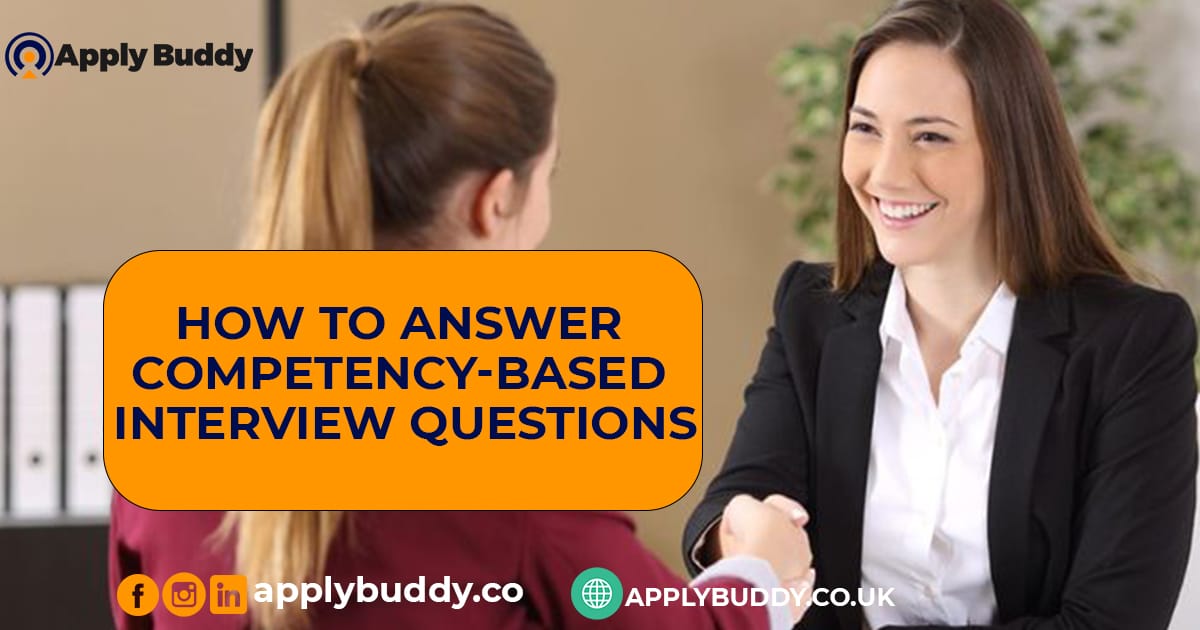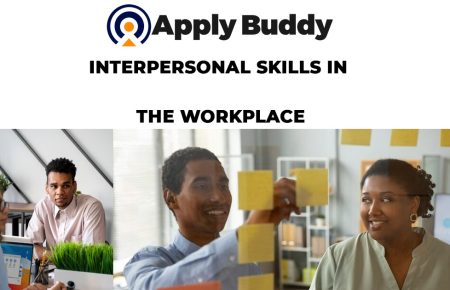Understanding how to answer competency-based interview questions is crucial, as these questions are commonly used in interviews to evaluate how your past experiences and behaviours match the role you’re applying for.
These questions aim to assess essential skills and attributes such as teamwork, problem-solving, and leadership, providing employers with insights into how you manage job-specific challenges.
To answer these questions effectively, you need more than just a recounting of your experiences; you must employ a structured approach to highlight your competencies.
This article will help you understand the purpose behind competency-based questions, use the STAR technique to frame your responses, and, prepare effectively to demonstrate why you are the ideal candidate.
Definition and Purpose of Competency-Based Questions
Competency-based interview questions, often behavioural questions, assess how you’ve managed various situations in your previous roles. These questions evaluate key competencies like teamwork, problem-solving, and leadership. They aim to uncover how your past experiences have equipped you for the challenges of the new role and whether you possess the skills the employer values. By focusing on specific examples from your history, these questions help interviewers gauge your ability to handle similar situations in the future. Being well-prepared for these questions involves reflecting on past experiences, highlighting your achievements, and demonstrating how your skills align with the requirements of the role you’re applying for.
Common Competencies Employers Assess
Employers frequently assess key competencies during interviews to determine how well candidates fit the role. These competencies might include teamwork, problem-solving, and leadership. By understanding these competencies, you can tailor your responses to showcase your relevant skills and experiences effectively. Preparing examples that illustrate how you’ve successfully demonstrated these qualities in past roles can significantly enhance your suitability for the position. Aligning your answers with the competencies the employer values not only highlights your qualifications but also demonstrates your understanding of the role’s requirements, making you a stronger candidate.
Common Competencies Employers Assess
- Teamwork: The ability to collaborate effectively with others, contribute to a cohesive team environment, and, achieve common goals through mutual support and cooperation.
- Problem-Solving: Skill in identifying, analysing, and resolving challenges through creative and practical solutions, demonstrating critical thinking and adaptability in various situations.
- Leadership: Capacity to guide, motivate, and influence others, driving a team towards achieving objectives while fostering a positive and productive work environment.
- Communication: Proficiency in conveying information clearly and effectively, ensuring understanding and engagement from all parties through articulate, concise, and impactful messaging.
- Time Management: Capability to organise, prioritise, and execute tasks efficiently, optimising productivity and meeting deadlines through effective planning and scheduling.
The STAR Technique
The STAR technique is an effective method for answering competency-based interview questions, ensuring your responses are clear and well-structured. STAR stands for Situation, Task, Action, and Result. This approach helps interviewers understand your abilities and how you’ve handled similar situations in the past.
- Situation: Describe the context by explaining the background and circumstances that led to the scenario you faced, providing relevant details to set the scene for your response.
- Task: Outline the specific responsibility or challenge you encountered in the situation, clarifying what you needed to achieve or resolve and why it was important.
- Action: Detail the precise steps you took to address the task or overcome the challenge, emphasising the methods and strategies you employed to tackle the issue effectively.
- Result: Highlight the outcome of your actions, showcasing the positive impact on the situation and any measurable improvements or achievements resulting from your efforts.
For example:
Situation: During a major project, our team faced a tight deadline due to unexpected technical issues that disrupted our progress. The client was anxious, and we needed a solution quickly to meet our commitments.
Task: My responsibility was to lead the team in identifying and resolving the technical issues promptly. It was crucial to restore progress and ensure the client remained satisfied with our timely delivery.
Action: I organised a series of urgent troubleshooting meetings, delegated tasks based on team expertise, and implemented a revised project plan. We worked overtime and closely monitored progress to stay on track.
Result: The technical issues were resolved within 48 hours, and we delivered the project on time. Client satisfaction improved, resulting in positive feedback and a follow-up contract for future projects.
Preparing for Competency-Based Interview Questions
Preparing for competency-based interview questions is crucial for showcasing your skills effectively. By identifying key competencies, crafting STAR responses, and practising your answers, you ensure that you present clear, relevant examples. This preparation helps you demonstrate your suitability for the role and significantly boosts your chances of success.
- Identify Relevant Competencies: Start by reviewing the job description to pinpoint the key competencies required for the role, such as teamwork, leadership, or problem-solving. Reflect on your past experiences to find examples that demonstrate these competencies.
- Craft STAR Responses: Use the STAR technique to structure your answers. For each competency, develop responses that cover the Situation, Task, Action, and Result. This will help you provide detailed and focused examples.
- Practice and Review: Practice your responses to competency-based questions with a friend or in front of a mirror. Review your answers to ensure they are clear, concise, and relevant.
Tips for Answering Competency-Based Questions Effectively
Answering competency-based questions effectively involves staying focused, being honest and specific, keeping answers concise, and using metrics to highlight success. These tips ensure your responses are impactful and relevant.
- Stay focused on the specific competency being assessed: Ensure your answer is directly relevant to the competency being assessed. Avoid going off on tangents.
- Be Honest and Specific with your examples: Use real examples from your experience. Specificity adds credibility and makes your answers more compelling.
- Keep your answers concise and to the point: Aim for brevity and clarity. Ensure your answers are to the point and avoid unnecessary details.
- Use Metrics and Outcomes to illustrate success: Whenever possible, include quantifiable results to illustrate the impact of your actions. This demonstrates the effectiveness of your approach.

APPLY BUDDY
Job application services can be overwhelming, but Apply Buddy is here to simplify the process.
We offer expert resume crafting, customised job application strategies, and comprehensive interview preparation to help you shine. Our support extends to managing job applications, reducing stress, and ensuring a seamless experience.
With Apply Buddy, you receive personalised guidance, valuable industry insights, and effective techniques to boost your chances of securing your dream job. Let us help you navigate your career journey with ease and confidence.
Conclusion
Answering competency-based interview questions effectively requires preparation and practice.
By understanding the competencies being assessed and using the STAR technique, you can provide well-structured and impactful answers. With these strategies, you’ll be well-prepared to showcase your abilities and increase your chances of impressing your interviewers.
Frequently Asked Questions (FAQs) for How to Answer Competency-Based Interview Questions
– What if I don’t have a direct experience related to the competency?
If you lack direct experience, choose examples from related contexts or transferable skills. Highlight how your experiences have provided you with relevant skills or insights that can be applied to the competency in question.
– How can I make my answers stand out in a competency-based interview?
To make your answers stand out, ensure they are detailed and include specific outcomes. Use unique examples that demonstrate your problem-solving abilities or leadership skills in a way that aligns with the role’s requirements.
– Should I always use the STAR method for every competency question?
While the STAR method is highly effective, it’s not the only approach. For some questions, a slightly different structure might work better. However, maintaining clarity and focus in your answers is crucial, so adapt the STAR technique as needed.
– How do I handle multiple competency questions that seem repetitive?
If faced with repetitive questions, try to vary your examples while still highlighting the same competencies. This shows your range and depth of experience. Ensure that each example provides a new perspective or detail to keep your answers engaging and informative.





